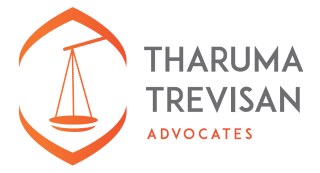
AIDA ATIKU VERSUS CENTENARY DEVELOPMENT BANK LIMITED CIVIL SUIT NO. 0754 OF 2022 (HIGH COURT OF UGANDA)
By Boaz Kaawe LL.B. (Hons), Bar Candidate (2022)
BRIEF FACTS:
On 2nd January 2020, Aida Atiku opened up a personal savings account at Centenary Bank and deposited UShs.56, 320,000. She then made one withdrawal of UShs. 700,000 on the 13th January, 2020. When she went to the bank to withdraw the rest of the money on the 27th August 2020, she was shocked to learn that her account had zero balance. She was then informed by the bank that someone had over time been withdrawing diverse sums of money electronically from the account using the “CenteMobile” platform, yet she contended that she had never applied for such a service. She thus demanded for the refund of her money to no avail and subsequently sued Centenary Bank for recovery of UShs. 55,616,000/= which she claimed was negligently debited from her bank account.
ATIKU’S CASE;
It was the Atiku’s case that she never requested for the CenteMobile electronic based banking platform although she had signed an account opening standard form acknowledging her application for the same. She also claimed to have signed the form without reading through although she was assisted by her daughter Hadija Mirembe. She stated further that she never mandated Centenary Bank to authorize withdrawals from her account and that the bank was negligent when it permitted the withdrawals from her account without her authority.
THE BANK’S CASE;
The bank denied the claim contending that although Atiku opened up the said account and made the deposit pleaded, she also registered for the “CenteMobile” service offered by the bank. She also undertook multiple transactions through the same platform because the said transactions were initiated and concluded using her officially registered mobile phone number, as thus, the bank denied being negligent nor fraudulent in any of the said transactions.
LEGAL ISSUES AS FORMULATED BY COURT;
- Whether or not the Bank was liable for the fraudulent and/ or negligent withdrawals made on its clients account?
- What remedies were available to the parties?
RESOLUTION OF ISSUES;
As to Whether or not the Bank was liable for the fraudulent and/ or negligent withdrawals made on it’s clients account
Court observed that Centenary Bank could not be held responsible for the loss of the money since at the material time, the Bank had in place a two factor authentication buffer to prevent unauthorized activity and access to the client’s bank account while using the “CenteMobile” digital platform.
The bank had other fraud safeguards in place. One of such safeguards was her registration for the SMS notifications which could enable her receive alerts whenever there was a transaction on her phone. The bank adduced evidence that SMS alerts were sent to her upon each transaction that was undertaken on her account whenever it occurred although she admitted receiving only one of such messages.
The Court also observed that Aida Atiku compromised some of the security features put in place by the Bank for her protection and instead reposed her trust and confidence in her daughter who usually read the messages on her phone.
Further, that the impugned transaction could have been either undertaken by Atiku herself, with her authorization or due to her negligence. That any hacker had to be in possession of the customer’s two-factor authentication, the actual phone and its corresponding sim card which were both under the personal custody and control of Atiku at all material time and not the Bank.
The Court reasoned that the risk of loss for an unauthorized transaction lies with a customer if the bank can establish that the security procedure it has in place is a commercially reasonable method of providing security against unauthorized payment orders.
As to what remedies were available to the parties
The Court relieved the bank of its client’s claim for the money lost, together with costs. The Court applied the “imposter rule” which shifts the risk of loss from the depositor or drawee to the drawer of checks. The same rule presupposes that the party who is in the best position to prevent a forgery by exercising reasonable care should suffer the loss.
It was the Court’s basis that with the two-factor authentication buffer in place by the bank to prevent online digital fraud on its “CenteMobile” service, the controls against any fraud rested squarely and unilaterally in the hands of the bank customer. Thus the customer was meant to suffer the loss.
OTHER KEY ISSUES DISCUSSED;
Account opening forms;
In her testimony, Atiku Aida admitted to signing account opening forms although she emphasized that she never applied for the CenteMobile services. Her assertion was pegged on the fact that she never knew what she was signing at the time she did. And that she signed the form without reading it and neither did her daughter read it to her. Evidence was adduced in court showing the standard form that she signed had a provision for CenteMobile services which read as follows;
“I hereby apply for CenteMobile services. I warrant that the information given above is true and complete and I authorize you to take any enquiries necessary in connection with this application. I accept and agree to be bound by the general terms and conditions of use. I agree and I am liable for all charges incurred through the use of this Service. I hereby indemnify the Bank against all losses, which may occur as a result of my use of service. I understand that Centenary Bank reserves the right to decline this application without giving reasons.”
The Court underpinned the common law duty imposed on a signatory of a contract to make sure that he or she understands the terms and conditions before signing it. The Court held that a signature on a contractual document or other written agreement, demonstrates that a party has read, understood and consents to the terms and conditions in a contract. Therefore, a party to an agreement is bound by his or her signature, regardless of whether he or she has actually read the contract or not, except where the signature was obtained unfairly through misrepresentation, duress or undue influence, or where the text of a contract is so small that it was impossible to decipher, not even with a magnifying glass.
Hon. Justice Stephen Mubiru also observed that where there is no pressure applied by the bank in procuring the customer’s signature, such as where the customer is given the opportunity to obtain independent legal advice but the customer maintains a firm view that he or she wants to execute the instrument, the customer is deemed to have understood the nature and effect of the document, and the terms of the document are not unjust or unreasonable.
Latest Posts
Step by Step Guide to Subdvision of Land in Kenya
Agnetah Muli LL. B, KSL Dip. What is Subdivision? The process of subdivision involves the division of land into two or more parcels. The purpose is to...
COMPREHENDING REDUNDANCY IN EMPLOYMENT LAW – KENYA
“Fairness in all forms of termination is the staple of labour law”- Anon By Quincy Jesse Kiptoo LL.B. (Hons), CPM, Dip in Law The word Redundancy...

